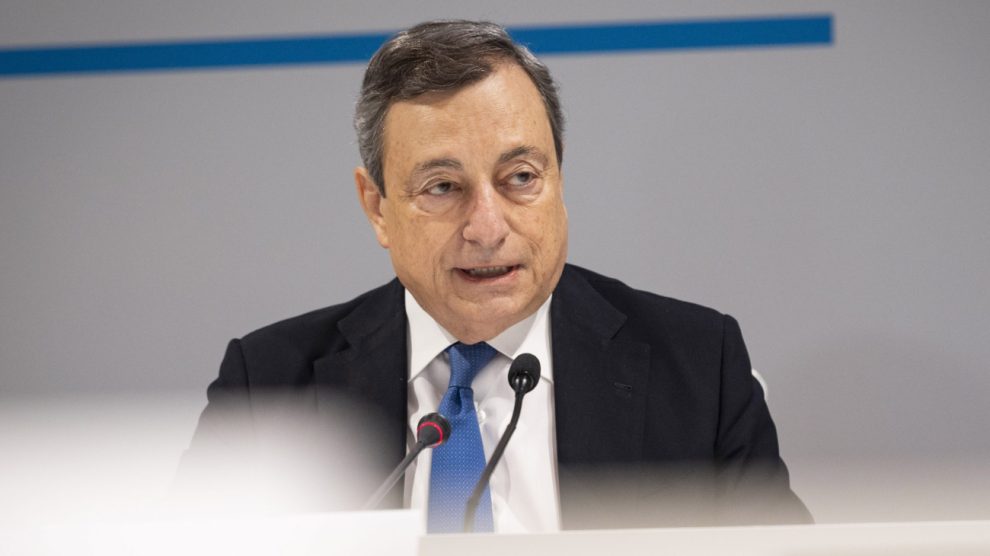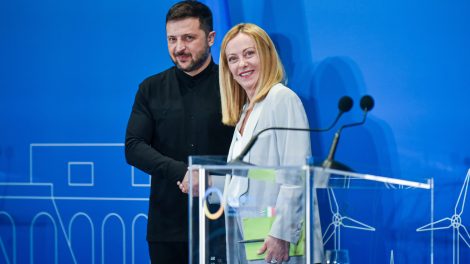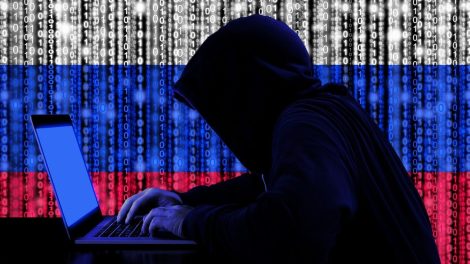As the Russia-initiated war in Ukraine escalates, Italy “won’t look the other way”. That much was declared by Italian Prime Minister Mario Draghi, during his speech to the Senate on Tuesday morning, to thunderous applause.
The PM held that Russia’s invasion of Ukraine “marks a decisive turning point in European history” and shatters the illusion of “[taking] for granted the achievements of peace, security and well-being, obtained by the generations that preceded us with enormous sacrifices.”
Mr Draghi went on to call Moscow’s aggression and Minsk’s compliance “an attack on our values, democracy and the institutions we have built together. Now it is up to all of us to decide how to react,” he added, speaking of the obligation to make choices that would have been “unthinkable just a few months ago.”
Getting serious about defence
Such choices include Europe’s decision to jointly buy and provide Ukraine with arms. Now, said the PM, it’s “essential the lessons of this emergency do not go to waste,” before calling for speeding up the creation of a European joint defence force that’s “complementary to the Atlantic Alliance.”
“Today’s threat from Russia is an incentive to invest more in defence than we have ever done before. We can choose whether to do this at national or European level. My hope is that all countries will increasingly choose to adopt a common approach.”
Mr Draghi’s call to increase defence spending follows Germany’s historical decision to drastically increase military spending. Both measures are especially extraordinary given the two countries’ longstanding aversion, and accentuate the gravity of the unfolding crisis at Europe’s edge.
In past years the United States, by far NATO’s biggest contributor, has repeatedly pushed allies to invest at least 2% of GDP in defence, but few did. Under Berlin’s new commitment, though, Germany will now clear the threshold.
Speaking to Airpress, Italian General and former Defence Chief of Staff Vincenzo Camporini said Berlin’s decision resulted from a newfound awareness of the importance of the military dimension. He also remarked that Rome – long stuck at 1.3% – seemed ready to follow suit. Not only is it unwilling to single itself out, it also wants to contribute to shaping the budding European defence identity, he remarked.
Alberto Pagani, Democratic MP and member of the Lower House’s Defence Committee, agrees. He called reaching 2% a “strategic objective” for the country; while cautioning about Italy’s difficulty to fund such a shift, he remarked that such an investment would create value in technological research, which would trickle down into civic society.
Foreign policy: hardline and assistance
During his Senate speech, PM Draghi also remarked that Italy is ready to consider new sanctions to deter Russia from continuing its attack on Ukraine, and Belarus from continuing its support to it. He added that he’d proposed creating an international ledger of Russian oligarchs and pushed the Switzerland-based Bank for International Settlements to join sanctions.
The former ECB chief assured that Italy would continue supporting Ukraine through humanitarian and migratory aid, in coordination with European and international partners. He said that Rome had already sent €110 million in Kiyv’s direction as well as 4 tons of sanitary material, tents and camp beds.
He then recalled that 2,300 Italians were still in Ukraine and called on them to leave the country as quickly and safely as possible, and thanked the resident Italian Ambassador Pier Francesco Zazo, along with the rest of the diplomatic staff, for “the spirit of service, the dedication and the courage shown in these dramatic days.”
The Italian Embassy confirmed it was moving westward, to Lviv, later on Tuesday, along with dozens of Italian nationals.
Rethinking energy supply routes
Among the unprecedented actions demonstrating Italy’s newfound resolve is its plan to diversify energy suppliers to reduce its staggering dependence from Russia’s Gazprom. In his speech, PM Draghi again called for simplifying procedures and keep the focus on renewables while increasing regasification capacity (to increase liquified natural gas imports) and considering an upgrade to the Trans Atlantic Pipeline, a gas duct linking the country to Azerbaijan.
On Monday Foreign Minister Luigi Di Maio flew to Algeria to discuss upping the energy collaboration. The government believes it can drastically increase – or even double – gas flows from its other key suppliers, including Algeria’s Sonatrach (the second biggest after Gazprom), and is optimistic about restocking the country and the EU in the short period, even if Vladimir Putin were to abruptly cut off supplies.




